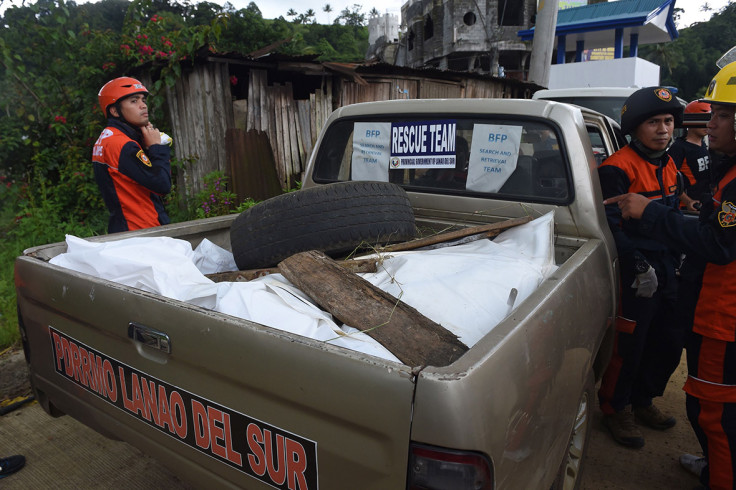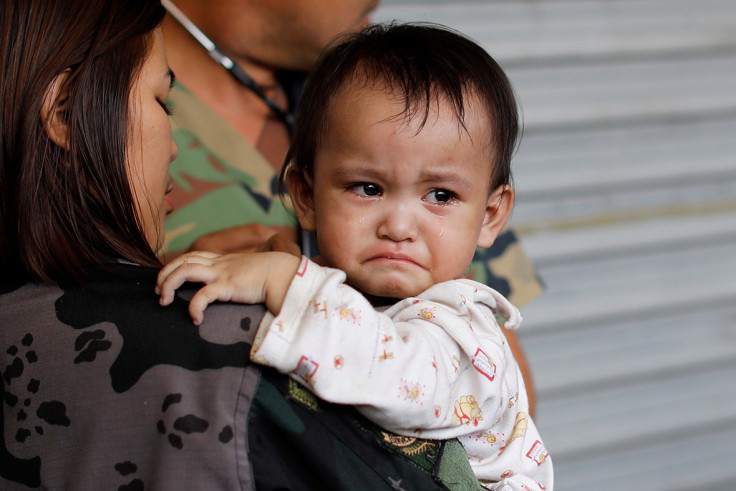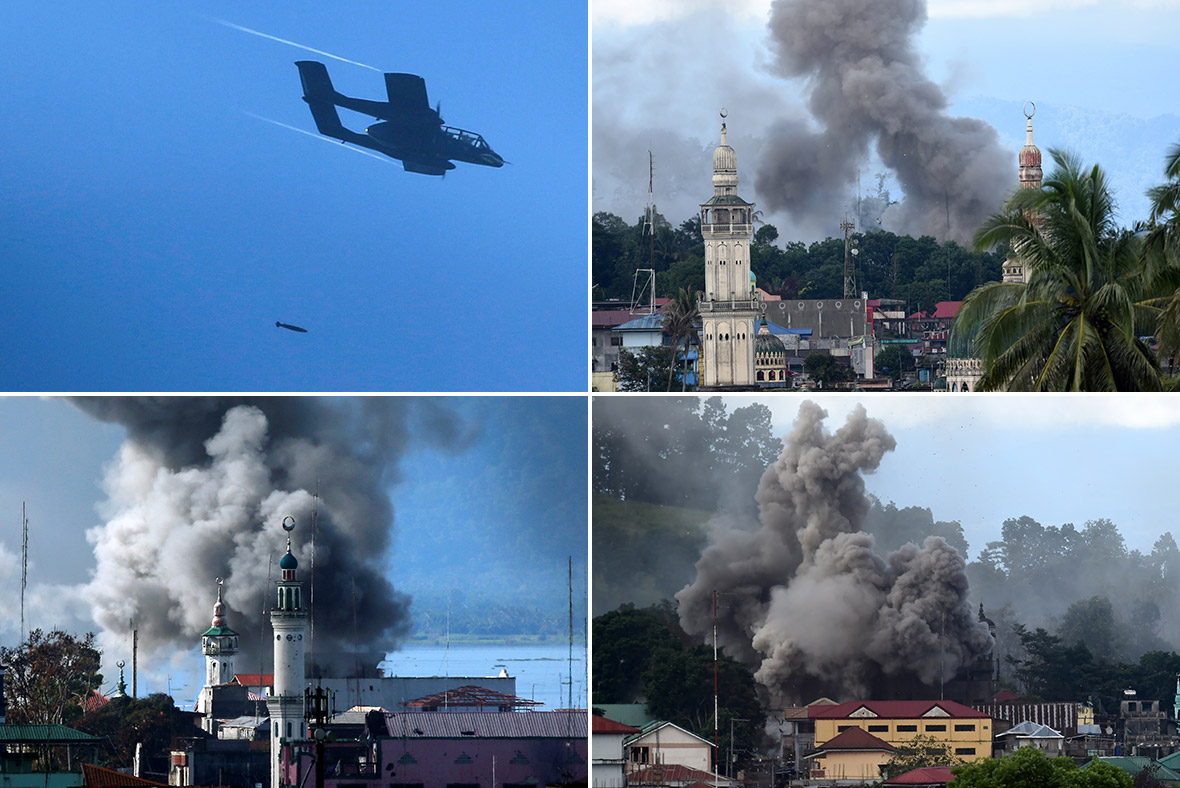Latest Marawi photos: Beheaded civilians found as siege enters sixth week
The military has warned the number of residents killed by rebel "atrocities" could rise sharply as troops capture more ground.
The decapitated bodies of five civilians have been found along with 12 other bodies in Marawi, the Philippine city occupied by Islamist rebels. The military has warned the number of residents killed by rebel "atrocities" could rise sharply as troops capture more ground.

The gruesome discovery is evidence that civilians trapped in the besieged city have been decapitated by militants loyal to the Islamic State group, as some who escaped the city have previously reported. Some escapees say bodies of residents have been left in the streets, some for weeks.
Military spokesman Restituto Padilla said it was likely that many civilians had been killed and the death toll – already at 27 before the latest 17 were announced – was only what the authorities could confirm independently. He said a "significant number" of dead had been seen by those who had escaped fighting.
Padilla said the cause of those deaths would be "atrocities committed by the terrorists". Among those atrocities, the army says, have been residents being forced to loot homes, take up arms, or become sex slaves.
Citing accounts of seven residents of Marawi City who either escaped or were rescued, the military said some hostages were forced to convert to Islam, carry wounded fighters to mosques, and marry militants of the Maute group loyal to Islamic State.

Videos have appeared on the website of Islamic State's Amaq news agency and its social media channels of hostages in Marawi pleading for their lives, saying they would be beheaded if air strikes were not stopped. Clips have also appeared of people on their knees, shot in the head from behind. Reuters was unable to confirm the authenticity of the reports.
The military has so far been reluctant to discuss the possibility that the real impact of the fighting on civilians could be far more severe than has been reported. It has played down the impact of daily air strikes and mortar assaults aimed at rebel sniper positions, which have reduced areas of the lakeside town to rubble. Some of the people stuck there have said the shelling was a bigger threat than the militants.
Although the Christian-majority Philippines has endured bouts of insurrection by Muslim groups for centuries, the two communities mostly live together peacefully. Now, many Muslims say, the vicious urban battle with government forces for control of Marawi may intensify the divide.
Civilians who have fled the fighting say the militants spread rumours on social media and by word of mouth that Christian soldiers were committing excesses against the largely Muslim population, and urged locals to take up arms.


At least 299 militants and 71 soldiers and police have died and around 246,000 people have been displaced since 23 May, when militants laid siege to Marawi. The battle for the city has entered its sixth week, with intense gunfights and bombing in the heart of the town and black-clad fighters seen from afar running between buildings. The rebels' hold on Marawi, while incurring the full force of a military for years trained by its US counterparts, has much of the region on edge, concerned that Islamic State's influence may run deeper than thought.








The rebels' combat capability, access to heavy weapons and use of foreign fighters have raised fears in the mainly Catholic country that the Marawi battle could just be the start of a wider campaign, and it could be presented by Maute as a triumph to aid their recruitment.
© Copyright IBTimes 2025. All rights reserved.






















